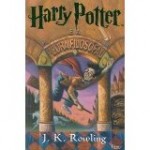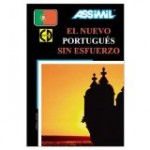Learn Portuguese with these resources
To learn Portuguese, you’re going need a way to learn correct pronunciation, a frequency dictionary to form your base vocabulary, and a good grammar book. You’ll also benefit from a thematic vocabulary book for specialized vocabulary and maybe a book or two, once you learn your first 1000 words. Make sure you read the Method sections of the website, then check out some of these recommended resources (pictures are links):
Pronunciation
First off, get a feel for how pronunciation works in English. The video tutorials here should help.
Once you understand that, start working on Portuguese. You’re going to need to decide upon your variant of Portuguese: Brazilian or European. They’re dialects of the same language, so the grammar is effectively the same, the vocabulary is only slightly different, and the accents are significantly different. You’ll tend to find more resources for Brazilian Portuguese.
Whichever you chose, you’re going to need a bunch of nasal vowels. At least until I make a Portuguese video, check out my French video for some advice on creating those. Then start on Portuguese. For now, there aren’t many published pronunciation resources available. The grammar book I recommend below begins with a decent pronunciation section and comes with a CD, and I’d suggest you start with that.
If you want to jump to free internet resources, check out this pronunciation guide and Wikipedia’s comprehensive (but slightly overwhelming) IPA for Portuguese. Also, try the beginning of the dry (but comprehensive) FSI Portuguese courses, particularly the Programmatic course.
Anki language learners community on Reddit. You can even check out this Anki language learning blog for other Anki tips and tricks for learning Portuguese.
Your base vocabulary
I’ve made a base vocabulary list of 600+ words to start you off! As I talk about in that article, I find it easiest to translate those words using the short dictionaries at the end of a Lonely Planet Phrasebook; they’re cheap, short and give you good, standard translations for your words (just ignore the ridiculous pronunciation guides). Later, when you’re ready for sentences, you can go back to your phrasebook and grab some. After that, try some of these resources:
The Routledge Frequency dictionary series is excellent, with example uses and everything. Get this at the beginning to direct your vocabulary work!
After you have a little bit of grammar under your belt, consider grabbing the cheap/free Brazilian Portuguese Vocabulary 101 eBook. It’s full of quality example sentences for your words that you can use to learn all sorts of grammatical constructions.
Portuguese Vocabulary for English Speakers is a book full of core vocabulary for just about any field/topic you can think of. It’s great for adding to your vocabulary once you get your first 1000 or 2000 words from a frequency list.
There’s not much I’ve found in terms of free resources. Wikipedia, as always, has a Portuguese frequency list, but it doesn’t have translations or example sentences, and in practice, you’ll save a lot of time by just getting the Routledge book above. Learn-portuguese-now.com has a list of the first 350 most frequent words with example sentences, which isn’t bad at all, though it’s not quite enough vocabulary to get you to an intermediate level.
Grammar book
There are three grammar books to consider.
The oddly-titled “Everything Learning Brazilian Portuguese Book” comes with a CD (don’t get the kindle version; the CD is really important), starts with pronunciation, and takes you through the language in a fairly standard, competent way. If you’re a beginner, you’ll probably want to start with this.
You might want a bit more grammar, and if so, consider the little $4 Essential Portuguese Grammar book. It’s supposed to be excellent, and at that price, you can’t really go wrong.
If you’re an intermediate student and like linguistic-y books, try Portuguese: A Reference Manual. It has wonderful reviews, and covers everything. I only suggest the Everything Learning book because this book can be overwhelming for a beginning student.
Book-type book
You can read anything that you enjoy. I’m a big fan of the Harry Potter series in translation, especially if you can find an audiobook version to listen to at the same time as reading. I’m listing the first book, but be aware that this version is European Portuguese. I’m having a bit of trouble finding a Brazilian version, so if you spot one, let me know and I’ll list it here as well.
Other Resources
Monolingual Dictionary
Priberam is a great, free online dictionary, with easy to understand monolingual definitions. Aurélio isn’t bad either. I wish I could give some suggestions on print versions, but they’re all hundreds of dollars. If you’re in Portugal or Brazil, pick up an Aurélio, a Houaiss or a Sacconi.
Linguee is a lovely dictionary resource, in that it shows you multiple example sentences for each word and tells you about each word’s relative frequency in the language. (Currently in English, Spanish, German, French and Portuguese)
Dicionário Editora da Língua Portuguesa is a reasonably priced, available worldwide, European Portuguese dictionary. The dictionary has an extensive general vocabulary and has been enriched with new common usage words.
Assimil
The Assimil series is a sort of special language-learning resource that I discuss in a blog post here. It doesn’t quite fit into any of the categories above, and I think it works best as a sort of supplemental source of Portuguese input. Unfortunately, there’s no English version of it, which is kind of ridiculous, since there’s an English version of Hungarian, of all things. I’m linking a Portuguese for Spanish speakers course, since that seems to be a common route into Portuguese, but if you know French, Dutch, German, Hungarian (?!), Italian, or Polish, there’s an Assimil book somewhere out there for you.
Dictionary
Dictionary provides translations, example sentences, conjugations, and synonyms for a number of languages including Portuguese.
Try the Fluent Forever App
By the way, did you know the book is now an app. Check out our Fluent Forever app!
Discover our immersive method rooted in neuroscience designed to take you to fluency in < 30 minutes a day through four steps:
- 1. Train your ears with pronunciation lessons.
- 2. Learn vocabulary through images instead of translations.
- 3. Learn grammar naturally through stories relevant to you.
- 4. Practice your speech to fluency with native tutors.
Check out our Fluent Forever app!











